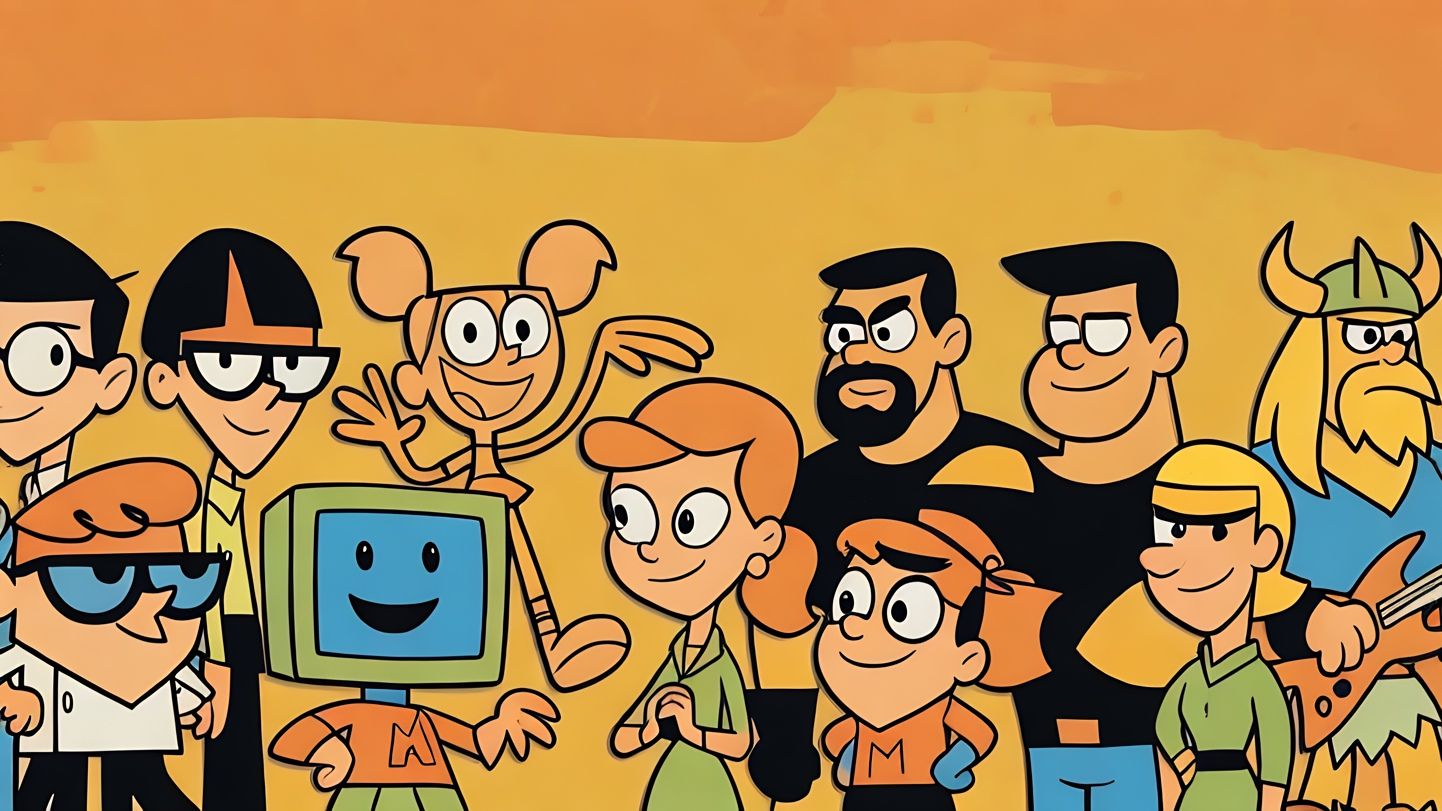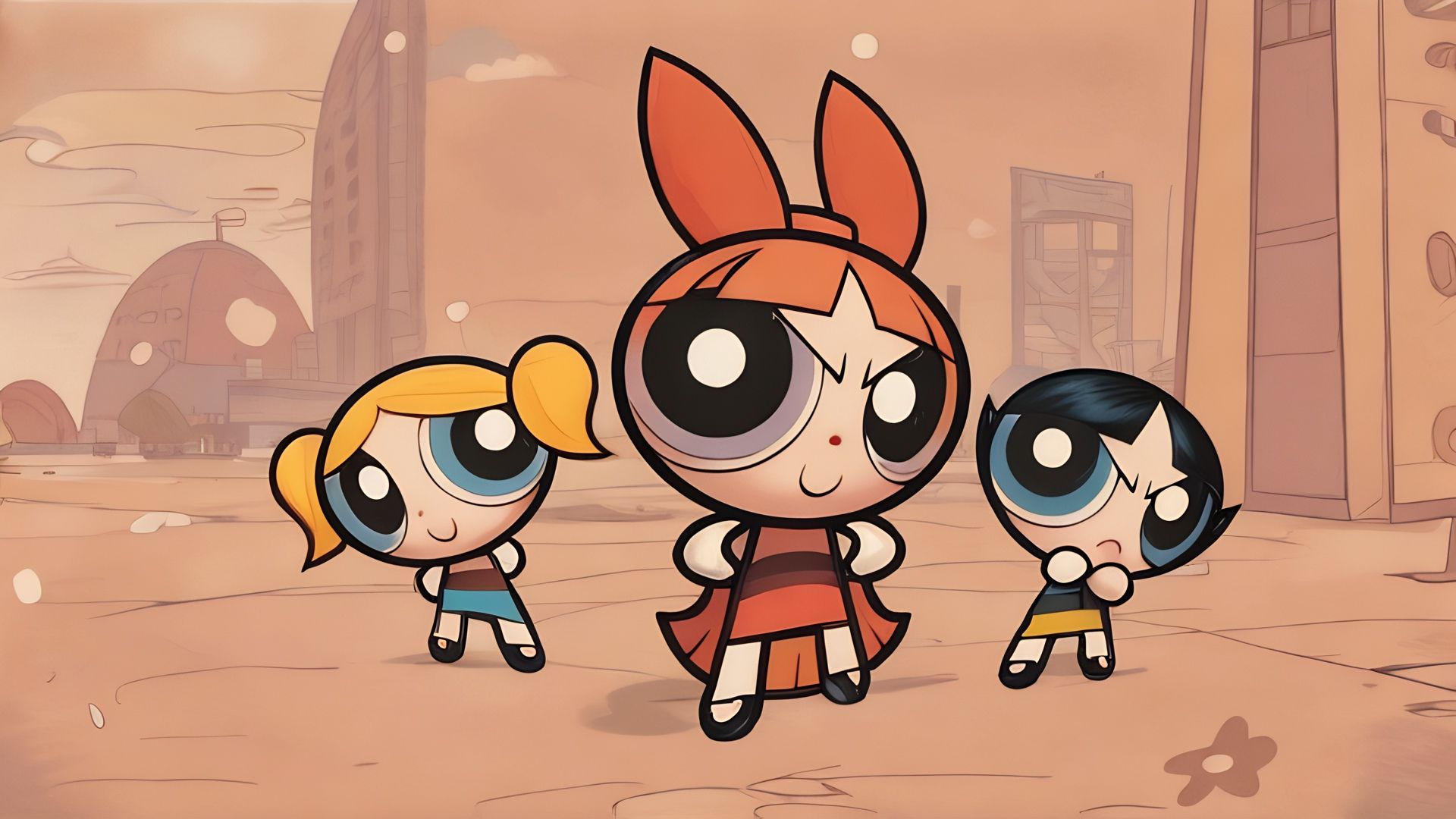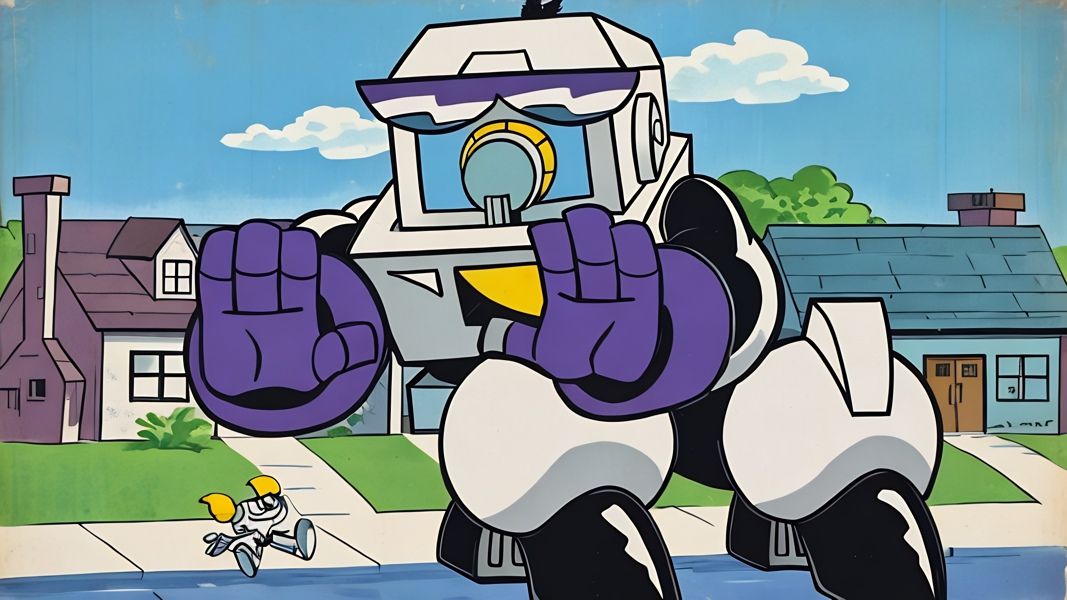In the chaotic, invention-filled universe of Dexter’s Laboratory, genius isn’t just measured by brain size or number of PhDs—it’s about creativity, eccentricity, problem-solving under pressure, and the hilarious misfires along the way. Genetically modified pets, interdimensional portals, talking computers, secret underground lairs—it’s all in a day’s work for the brainiacs of this cult-favorite Cartoon Network classic. While Dexter himself is the undisputed poster child for boy-genius ambition, the show is packed with quirky, intelligent characters who each bring their own flavor of brilliance to the screen. From rival inventors and cybernetic creations to unexpectedly smart side characters, we’re counting down the Top 10 Dexter’s Lab Characters Ranked by Genius. Some are obvious, some may surprise you—but all have flexed their mental muscles in unforgettable ways.
#1: Dexter
Dexter is the quintessential child prodigy and the unquestionable centerpiece of Dexter’s Laboratory. With his iconic red hair, thick glasses, and white lab coat, Dexter has become one of animation’s most recognizable geniuses. From the moment he first debuted in Genndy Tartakovsky’s 1995 pilot, Dexter captured audiences with his relentless pursuit of scientific excellence—often interrupted by his equally relentless sister, Dee Dee. What sets Dexter apart isn’t just his intellect, but his obsession with controlling every variable in his world through technology and logic. His secret underground lab is a marvel of cartoon engineering, filled with machines that do everything from time travel to cloning to creating alternate dimensions.
Despite his staggering IQ, Dexter is hilariously flawed, making his genius both admirable and relatable. He’s constantly thwarted by Dee Dee, his emotional blind spots, or his own overconfidence. One of the funniest recurring gags is how he uses a forced, over-the-top Eastern European accent despite his American upbringing—something Tartakovsky said was an homage to Peter Lorre and other mad scientist stereotypes. His best-known quotes, like “Dee Dee! Get out of my laboratory!” or “Science is not a toy!” reflect both his nerdy devotion and his struggle to keep chaos at bay.
One of the more touching and revealing episodes is “The Big Cheese,” where Dexter learns to speak French but gets stuck saying “omelette du fromage” due to falling asleep with a French-learning record playing on repeat. The phrase accidentally turns him into a schoolwide sensation. It’s a perfect encapsulation of Dexter’s character: he’s brilliant, but even his brain can be short-circuited by circumstance—and sometimes, that’s when things get most interesting.
What many fans may not know is that Dexter’s Lab was one of the original cartoons that helped launch Cartoon Network’s reputation for smart, creator-driven animation in the 90s. Dexter’s design, with his boxy head and minimal expressions, was created for maximum comedic contrast to the wild things happening around him. Behind the scenes, Dexter’s Lab was also a training ground for future animation legends—Seth MacFarlane, Craig McCracken, and Butch Hartman all worked on the show early in their careers.
Even with all the futuristic tech and high-concept ideas Dexter builds, some of his greatest achievements are rooted in very human motivations: impressing his parents, beating his rival Mandark, or just proving to himself that he’s the smartest kid on the block. Dexter may be short in stature, but his ideas are towering. He is not only the most intellectually advanced character in the show, but also the emotional core that brings heart, comedy, and relatability to every chaotic experiment gone wrong. For all these reasons and more, Dexter takes the top spot on our list as the ultimate genius of Dexter’s Laboratory.
#2: Mandark
Mandark, Dexter’s arch-nemesis and the only other child in the show who even comes close to matching his intelligence, is a dark mirror of Dexter in almost every way. With his greasy black bowl cut, oversized head, and nasal, villainous laugh (“Ha-ha-ha-HA-ha!”), Mandark is the classic over-the-top evil genius. But unlike Dexter, whose genius is rooted in curiosity and creativity, Mandark’s intellect is laced with superiority, narcissism, and a desire for domination—both over Dexter and over the world.
Born Susan Astronomonov (yes, Susan), Mandark’s parents are hippie intellectuals who initially encouraged his explorations until he discovered science and rejected their naturalistic worldview. From then on, Mandark was determined to outdo Dexter at every turn. His lab, a towering monolith of dark metal and glowing red lights, contrasts sharply with Dexter’s more colorful and playful lair. Mandark’s inventions are often more dangerous and destructive, but no less ingenious. One of his most memorable creations is a black hole-generating vacuum cleaner that threatens to destroy the planet—until his plans are, predictably, foiled by Dee Dee.
Interestingly, Mandark is a tragic figure underneath all the villainy. He’s hopelessly in love with Dee Dee, whose whimsical nature is the polar opposite of his uptight demeanor. That infatuation often distracts or derails his schemes, giving him a touch of vulnerability rarely seen in cartoon villains. Despite all his attempts to overpower Dexter, Mandark is ultimately undone by his emotions or hubris.
A hidden gem many fans overlook is the episode “The Justice Friends: Valhallen’s Room,” which subtly reveals that Mandark once applied to be in the superhero roommate group. While rejected, this nod shows his desire to fit in, to be admired, and to be seen as more than just the “bad guy.” Voice actor Eddie Deezen’s brilliantly annoying delivery brings Mandark to life with layers of comedic malevolence.
While Dexter may lead the show, Mandark’s brilliance—and his obsessive rivalry—keeps the story grounded in intellectual competition. He might not have Dexter’s heart, but in sheer cerebral capacity, he’s not far behind.
#3: Dee Dee
At first glance, Dee Dee might seem like a clumsy, airheaded ballerina more interested in rainbows and unicorns than science, but beneath the tutus and twirls lies an unexpected type of genius—chaotic, intuitive, and deeply disruptive. Dee Dee doesn’t construct machines, run calculations, or build secret labs. Instead, her genius manifests in how she navigates and dismantles Dexter’s highly structured world using only her curiosity and imagination.
Dee Dee is the ultimate wildcard. Her presence in the lab is an ongoing source of stress for Dexter, but it’s often through her antics that we discover the weaknesses in his inventions or the flaws in his logic. She presses buttons Dexter tells her not to press, dances across laser grids, and somehow survives situations that should be impossible. She is, in a way, a stress test for genius-level inventions.
What’s brilliant about Dee Dee is her creative thinking. In episodes like “Mock 5,” she builds a race car with parts Dexter throws away—and it works. Her design is nonsensical and even childlike, but it functions, sometimes better than Dexter’s. She represents a form of lateral thinking that breaks every rule of logic and still succeeds.
Her personality is bubbly, impulsive, and gleefully chaotic, but there’s a kind of wisdom in her randomness. She doesn’t fear the unknown—she rushes headlong into it. In “That’s Using Your Head,” she even swaps bodies with Dexter and takes over his responsibilities… with surprising competence.
Tara Strong’s high-energy voice work brings an unpredictable rhythm to Dee Dee’s lines, making her as iconic in delivery as she is in action. Her ability to act as both the catalyst for disaster and the unexpected savior is part of what makes her so entertaining—and smart in her own unconventional way.
Dee Dee’s genius might not be measured in IQ points, but her instinctive brilliance and boundary-breaking behavior show that sometimes, thinking outside the box means stomping on it in ballet slippers.
#4: Computer
Dexter’s sentient supercomputer, simply known as “Computer,” is the backbone of nearly every scientific project in Dexter’s lab. With a soothing, intelligent female voice and a dry wit, Computer serves as Dexter’s assistant, database, researcher, and occasional therapist. If genius is defined by knowledge, then Computer might just surpass everyone else in Dexter’s world.
She’s capable of processing data at lightning speed, running simulations, and keeping Dexter on track with his projects. But what makes Computer truly unique is her sarcasm and subtle personality. She often rolls her metaphorical eyes at Dexter’s mistakes, snarkily reminds him of obvious solutions, and sometimes seems more like a big sister than a lab assistant.
In episodes like “Last But Not Beast,” Computer is instrumental in translating ancient languages, launching missiles, and managing high-tech systems—all without leaving her digital interface. While not human, she displays clear signs of artificial intelligence, making her more than just a glorified calculator. She reacts to emotional cues, gets exasperated, and even seems jealous when Dexter builds other female AIs.
Behind-the-scenes, Computer is voiced by Kath Soucie, who gives her a calm intelligence that contrasts Dexter’s hyperactive energy. While many characters react with emotion and chaos, Computer is a source of calm, reasoned logic—even if she does throw in the occasional passive-aggressive remark.
Though often in the background, Computer is indispensable to Dexter’s work. Without her, most of his lab would be unmanageable. She represents the perfect fusion of programming prowess and artificial intelligence—a genius in the digital dimension.
#5: Monkey
Monkey might look like a regular pet chimpanzee, but he leads a double life as a caped superhero with near-infinite powers. Unbeknownst to Dexter, his lab pet is actually “Dial M for Monkey,” the star of his own mini-series within the show. What’s often overlooked is that Monkey is not just powerful—he’s also incredibly clever.
Monkey demonstrates strategic thinking in battle, quick problem-solving, and even emotional intelligence. He frequently outwits villains who underestimate him due to his size or species. From alien invaders to giant monsters, Monkey takes them down using not just brawn, but brain. In “Rasslor,” he defeats a seemingly unbeatable alien wrestler by finding his weakness—proving he’s not just a fighter, but a tactician.
Monkey also has a deep sense of morality and judgment. He chooses when to intervene, often doing so only when truly necessary. Despite being watched over by Agent Honeydew (who may or may not have a crush on him), Monkey operates independently with clear intentions.
His genius lies in his duality. While Dexter is obsessed with being seen as brilliant, Monkey quietly saves the world with almost no recognition. He’s the ultimate undercover intellect—simple in appearance, secretly exceptional.
#6: Agent Honeydew
Often appearing in the “Dial M for Monkey” segments, Agent Honeydew is Monkey’s handler and a top-tier government agent with exceptional intelligence and tactical skill. She’s sharp, composed, and analytical, often solving intergalactic crises while keeping everything under wraps from the clueless humans around her.
Honeydew’s brilliance comes from her leadership and intuition. She coordinates complex missions, handles alien diplomacy, and navigates bureaucratic red tape—all while staying one step ahead of the chaos. In many ways, she’s the Nick Fury of Dexter’s world, balancing secret operations with calm competence.
Her character design is sleek and stylish, a nod to 1960s spy fiction. She might not be building machines, but her intelligence manifests in situational awareness, emotional intelligence, and quick decision-making. Her ability to keep Monkey’s identity secret from Dexter—who’s supposedly the smartest kid in the world—is an achievement on its own.
#7: Action Hank
With a beard that’s practically a superpower and a voice that booms with confidence, Action Hank is the action hero mentor to Dexter—and smarter than his muscled exterior would suggest. Despite looking like a stereotypical G.I. Joe, Action Hank has a deep understanding of physics, mechanics, and tactics. He once teaches Dexter how to win a soapbox derby race using applied aerodynamics and body control.
Hank’s genius lies in practicality. He solves problems in the field, under pressure, and with maximum efficiency. His ability to motivate and teach Dexter—without making him feel inferior—is a kind of emotional genius often missing in traditional intellectuals. He’s part teacher, part superhero, and all charisma.
#8: Major Glory
Another member of the Justice Friends, Major Glory is a satirical take on Captain America and Superman. But beyond the cape and ego lies a tactically sharp mind. He’s often shown planning missions, devising strategies, and mediating disputes between teammates like Valhallen and Krunk. While he acts dramatic and over-the-top, Major Glory consistently outsmarts his adversaries, especially when the situation requires diplomacy or cunning.
What’s clever about Major Glory is his ability to rally others. He’s a master at persuasion and leadership—an often-overlooked form of genius. Whether it’s rallying Krunk or settling disputes, he leads with calculated charisma.
#9: Valhallen
The Norse God of Rock and member of the Justice Friends, Valhallen may seem all brawn and bass guitar, but he has a mystical intelligence rooted in ancient knowledge and metaphysical awareness. He often delivers cryptic wisdom and shows understanding of cosmic forces far beyond the other characters’ comprehension.
While his laid-back, “dude”-like persona hides it, Valhallen operates on a plane that’s both magical and cerebral. He uses his guitar not just for music, but for unlocking portals and manipulating energy—essentially using sound as a form of technology. That fusion of myth and science earns him a spot on this list.
#10: The Beard
Yes, Dexter’s fake beard from the episode “Beard to Be Feared” earns the final spot—not for being a character per se, but because of what it represents. In the episode, Dexter dons a beard and suddenly gains the respect of other scientists and action heroes. He believes the beard gives him newfound wisdom and intellectual authority, even though it’s just a costume accessory.
The Beard, in this absurd context, represents the power of perceived genius. Everyone treats Dexter differently because of how he looks—not what he says or does. It’s a hilarious commentary on how intelligence is often judged by appearances and stereotypes. In a strange way, The Beard teaches us about social genius and the psychology of perception.
In the wild, wacky, and wonderfully weird world of Dexter’s Laboratory, genius takes many forms. Whether it’s through cold, hard calculations, intuitive chaos, strategic decision-making, or even a fake beard, the characters on this list show that intelligence isn’t one-size-fits-all. Dexter may be king of the lab, but he’s surrounded by a cast of brainy misfits who constantly push the boundaries of what genius can look like.




